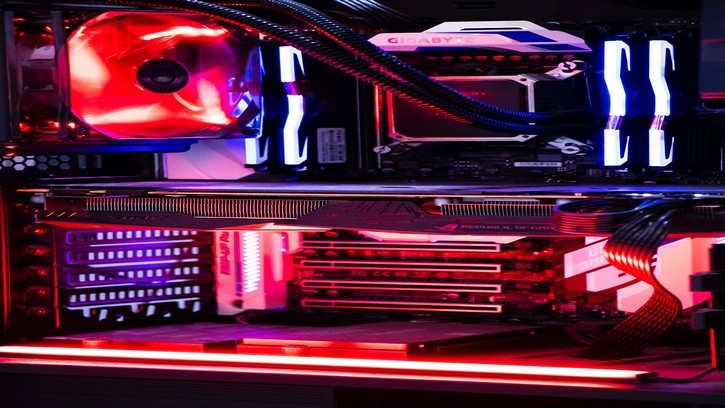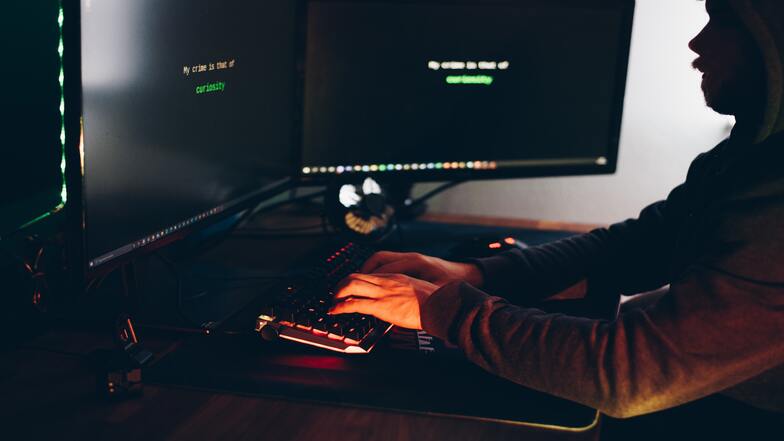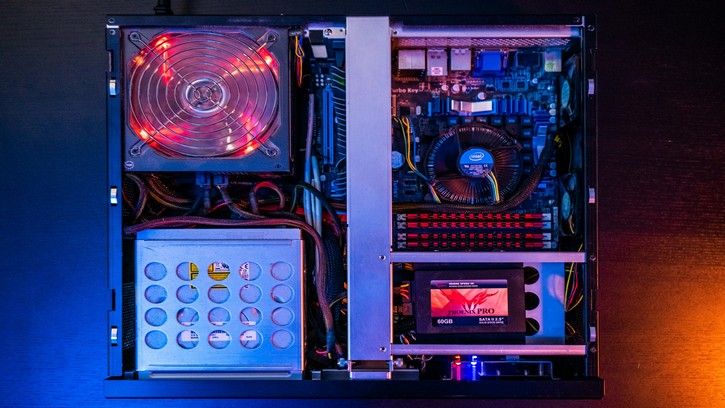Technical issues with your PC happen quite often and it is a good idea to digest all the information below you can so you can fully understand the problem and the fixes.
Random PC shutdowns are a common issue and it can be irritating for people to experience them while they are gaming.
This article will explain PC shutdowns; why they happen, what causes the issues, and most importantly for fellow gamers: why your PC shuts down when gaming.
What Causes Random PC Shutdowns?
There are various reasons for random PC shutdowns and there might be even more as technology improves in the future. If you have encountered one, it is good to know the cause for it so you do not damage any computer parts you may have or even get your PC’s files wiped out.

Power supply problem
This is one of the most common issues for a random PC shutdown is because of your power supply. This issue is also delicate because it can destroy your other PC parts if you ignore the problem.
Sometimes, PC’s that are newly built with a new PSU (Power Supply Unit) can run even if you lack the recommended voltage. Once your PC starts running heavy games, that’s where the issue will pop up.
This can break your PC components and even cause your PC to stop working since the power supply might break. Among other things, your other parts might get damaged or stop working as well.
This is a common issue if you’ve recently upgraded your GPU without checking if you also needed to upgrade your PSU. You often need to upgrade both at the same time.
Computer overheating
Another reason your PC may be shutting down on its own is because of your processor overheating.
When you build or have your PC built, there needs to be thermal paste and fans on your CPU. Technically, you do not have to keep putting thermal paste on your CPU since it can last for more than 3 years to keep your PC cool.
If you are not gaming 24/7, this will be even longer so there is no need to reapply thermal paste when it dries up. There is a lot of software out there that can detect your PC’s temperature especially during the times when you are running multiple applications at once.
It is best to check if your PC is overheating by checking it through a software that shows the temperature of your CPU.
Do this when you are running a game that you constantly play and maybe try to turn on more stuff that you are consistently doing on a daily basis to check how much you can handle.
Malware

These are usually gotten from visiting unwanted sites and downloading from unknown sources. As someone that uses the PC more than 6 hours a day, I absolutely refrain from downloading anything not sourced directly from what I need.
An example would be, if I need a video editing software, I will take one directly from the company’s site. Software made by third parties is never recommended. This is why I do not need an antivirus software because it will just slow your PC down. You just need to know how to be safe. If your PC got hit by a virus, worm, or any malware, you will have to clear everything and do some reformatting.
Windows, antivirus, or driver updates
This case is extremely rare and it really depends on how aware you are about your software and updates. Like Windows 10, they tend to shut down and restart your PC immediately for installing updates unless you change your settings.
The same goes for the antivirus but they usually notify or remind you that the PC will shut down or restart. If you are playing a game, you might not notice it and you just see your PC instantly shut down. It is good to be aware of these things and it getting this problem will be a relief as the ones above are much more dangerous.
The Difference Between a Random Shutdown and a Blue Screen
The two problems are almost identical. On the technical side, the random shutdowns are often due to the power supply unit if it cannot handle your hardware. Getting blue screens can be the resulting problem from the random shutdowns.
As your PSU gets overworked, it can damage your computer’s hardware and that is the last thing you want because this is extremely expensive to replace. As blue screens are normally caused by hardware issues.
The most common blue screens are caused by having no space at all in the drive where your OS (Windows) is installed. The next would be some driver bug issues which are mostly harmless and you just need to update or reinstall drivers.
How to Fix Random PC Shutdowns
The best way is to just be aware of all the things that might make this occur. That will narrow things down to fewer causes to identify. As you are gaming, you might be unaware of the things that are happening such as shutdown notifications from automated updates for your OS, antivirus, and drivers. This can be the issue and most of these just restart your PC.
For the PSU, you need to know the exact wattage your current build will be needing. It’s recommended that you go with a PSU that can handle a higher wattage than your setup needs in case you want to upgrade in future, but make sure you get at least the required wattage at a minimum.

If you have built your gaming PC on a budget, you are capitalizing on value than what is currently best.
This means that you will be upgrading more consistently as prices on other parts, such as GPUs, go down.
If your PC is overheating, you can check your thermal paste if it has dried up or put your PC case in a cooler environment. Built PCs should already have fans connected and make sure it is facing the right way too.
Conclusion
You should always think about the future when building a PC so problems like this do not show up often. Some of the PC shutdowns can be deadly and you might end up breaking all the hardware you have if you let this slide on longer than it should.
In other cases such as regular updates, they are harmless but you should definitely be aware of this so you do not play when there are updates that are going. This can be changed through the settings but gamers usually forget to update this and it can also be a setback.




